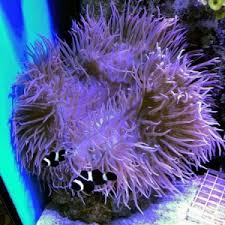China is the birthplace of tea and home to some of the most breathtaking tea landscapes in the world. For tea enthusiasts, exploring China’s tea culture is more than just visiting plantations—it is about experiencing centuries-old traditions, learning the art of tea-making, and savoring authentic flavors in stunning natural settings.

From the misty mountains of Fujian to the vast tea fields of Yunnan, this article explores the most famous travel destinations in China for tea lovers, highlighting their history, unique tea varieties, and must-visit locations.
1. Hangzhou – The Home of Longjing Tea (Dragon Well Tea)
1.1. Why Hangzhou is a Must-Visit for Tea Enthusiasts
Hangzhou, the capital of Zhejiang province, is one of China’s most famous tea destinations. It is the birthplace of Longjing (龙井) tea, also known as Dragon Well Tea, which is considered one of China’s most prestigious green teas.
1.2. Best Tea Attractions in Hangzhou
1.2.1. Longjing Tea Plantations (龙井茶园)
- The lush green fields of Longjing Village offer a serene experience, where visitors can see farmers handpicking tea leaves.
- The best time to visit is spring (March to May) when tea harvesting begins.
1.2.2. China National Tea Museum (中国茶叶博物馆)
- This museum showcases China’s rich tea history, with exhibitions on different tea varieties and tea-making techniques.
- Visitors can join interactive tea-tasting sessions and learn about traditional Chinese tea ceremonies.
1.2.3. Meijiawu Tea Village (梅家坞茶村)
- A picturesque village famous for producing high-quality Longjing tea.
- Many traditional tea houses here offer tea-tasting experiences with local dishes.
2. Huangshan – The Home of Huangshan Maofeng Tea
2.1. Why Huangshan is Special for Tea Lovers
Huangshan, also known as Yellow Mountain, is famous for producing Huangshan Maofeng (黄山毛峰), one of China’s finest green teas. The high-altitude climate and misty environment create the perfect conditions for tea cultivation.
2.2. Best Tea Attractions in Huangshan
2.2.1. Xihong Tea Garden (西宏茶园)
- One of the oldest tea plantations in Huangshan, where visitors can witness the traditional methods of hand-rolling Maofeng tea leaves.
2.2.2. Tunxi Ancient Street (屯溪老街)
- A historical tea street filled with old tea houses and specialty tea shops selling Huangshan Maofeng.
2.2.3. Shexian Tea Culture Garden (歙县茶文化园)
- Offers a hands-on tea-picking experience and insights into the ancient tea-processing techniques.
3. Fujian – The Birthplace of Oolong Tea
3.1. Why Fujian is a Paradise for Oolong Tea Lovers
Fujian province is home to some of the world’s most famous oolong teas, including Tieguanyin (铁观音), Da Hong Pao (大红袍), and Baihao Yinzhen (白毫银针) white tea.
3.2. Best Tea Attractions in Fujian
3.2.1. Wuyi Mountains (武夷山) – The Home of Rock Oolong Tea
- This UNESCO World Heritage site is famous for producing Da Hong Pao, one of the rarest and most expensive teas in China.
- Visitors can hike through tea fields nestled between towering cliffs and taste the rich, roasted flavors of rock oolong tea (岩茶).
3.2.2. Anxi Tea Plantations (安溪茶园) – The Origin of Tieguanyin Tea
- Anxi county is the birthplace of Tieguanyin, a highly fragrant semi-fermented oolong tea.
- Many tea farms here offer guided tours, where visitors can participate in tea roasting and rolling sessions.
3.2.3. Fuding White Tea Farm (福鼎白茶基地)
- Located in the northern part of Fujian, Fuding is the main production area for Baihao Yinzhen (Silver Needle White Tea).
- The plantation offers white tea tastings with scenic views of the surrounding misty hills.
4. Yunnan – The Birthplace of Pu-erh Tea
4.1. Why Yunnan is a Dream Destination for Tea Aficionados
Yunnan province is known as the birthplace of Pu-erh (普洱茶), a fermented and aged tea that develops richer flavors over time.
4.2. Best Tea Attractions in Yunnan
4.2.1. Xishuangbanna Tea Plantations (西双版纳茶园)
- Home to ancient wild tea trees, some over 1,000 years old.
- Visitors can learn about the traditional fermentation process of Pu-erh tea.
4.2.2. Pu-erh Tea Museum (普洱茶博物馆)
- Located in Pu’er City, this museum displays the history, culture, and aging process of Pu-erh tea.
4.2.3. Jingmai Mountain (景迈山)
- A UNESCO-listed tea region where ethnic minority tea farmers still use ancient tea-processing techniques.
- Tourists can stay in traditional wooden tea houses and experience the authentic tea culture of the Dai and Bulang people.
5. Sichuan – The Home of Mengding Ganlu Tea
5.1. What Makes Sichuan Special for Tea Enthusiasts
Sichuan province is home to Mengding Ganlu (蒙顶甘露), one of China’s oldest steamed green teas with a sweet, mellow taste.
5.2. Best Tea Attractions in Sichuan
5.2.1. Mengding Mountain Tea Plantation (蒙顶山茶园)
- Considered one of the oldest tea cultivation sites in China, dating back over 2,000 years.
- Visitors can join tea-picking activities and witness traditional tea steaming techniques.
5.2.2. Sichuan Tea Museum (四川茶叶博物馆)
- Located in Chengdu, this museum showcases the history of Sichuan tea culture.
- Tea lovers can experience a Gongfu tea ceremony demonstration.
6. Guangxi – The Home of Liu Bao Dark Tea
6.1. Why Guangxi is a Unique Tea Destination
Guangxi province is famous for Liu Bao (六堡茶), a fermented dark tea that is often aged for decades.
6.2. Best Tea Attractions in Guangxi
6.2.1. Cangwu Liu Bao Tea Gardens (苍梧六堡茶园)
- A historic tea-growing region where aged Liu Bao tea is stored in traditional bamboo baskets.
6.2.2. Hezhou Tea Street (贺州茶街)
- A bustling street filled with tea shops selling vintage Liu Bao tea cakes.
Conclusion
For tea lovers, traveling through China offers an unforgettable journey into the world of authentic Chinese tea culture. From the emerald-green fields of Hangzhou’s Longjing tea to the ancient Pu-erh trees of Yunnan, each region provides a unique experience that connects visitors with centuries of tea tradition and craftsmanship.
Whether you are interested in tea plantations, cultural museums, or hands-on tea-making experiences, China offers endless opportunities to explore the rich world of tea. So, pack your bags, prepare your taste buds, and embark on an incredible tea adventure across China! 🍵✨
Leave a Reply